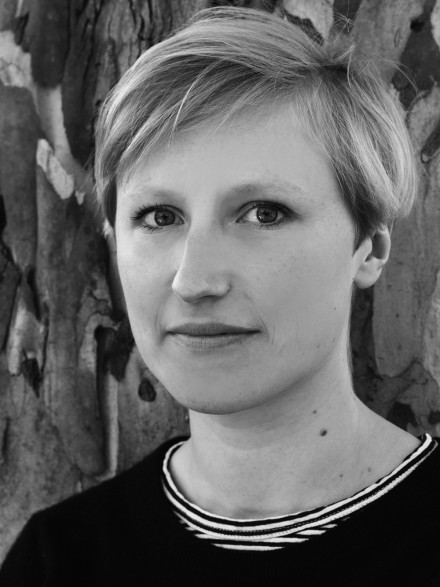Dr Pia van Gelder

Contacts
Pia van Gelder is an electronic artist, researcher and historian. Their art practice and writing investigates historical and contemporary conceptions of energies and how these shape our relationship with technology, bodies and our environment. Their historical research has concentrated on the influence of esotericism on electronic instruments of the 20th century and their book current project The Energies Artists Say is a collection co-edited with Professor Douglas Kahn presenting a methodology for understanding the polyvalence of energies in practices across the arts.
Van Gelder’s work has been shown at the Black Mountain College Museum (NC, USA), Kyoto Art Centre, SuperDeluxe Tokyo, ISEA, Langgeng Art Foundation and iCan in Yogyakarta. Their work has been commissioned by organisations such as Sydney’s Museum of Contemporary Art, Performance Space and Carriageworks. Their practice often involves designing and building electronic instruments that are presented in performance and interactive installation contexts. Van Gelder performs live at events and festivals including Liquid Architecture, with various sound and audio-visual projects. They have curated and facilitated events and been involved in a number of artist run initiatives including Dorkbot Sydney, which they founded in 2006, Moduluxxx, a festival of modular synthesis and Serial Space, an experimental art space that they codirected from 2010-2013 and Lanfranchis, an experimental art space codirected from 2004-2007. Often traversing the spaces of transdisciplinary and speculative art and design, their work has been discussed in recent critical texts including Prudence Gibson’s The Plant Contract, Art’s Return to Vegetal Life (Brill, 2018), Peter Weibel’s Sound Art, Sound as a Medium of Art (MIT, 2019).
Their writing has been published in the Journal of Sonic Studies (16, Materials of Sound). With Caleb Kelly, they have co-authored a chapter of the forthcoming 3rd edition of Nicolas Collins, Handmade Electronic Music: The Art of Hardware Hacking (Routledge) and coedited a forthcoming collection Feminist, Queer, Anticolonial Propositions for Hacking the Anthropocene: Archive (Open Humanities Press), with Jennifer Mae Hamilton, Sue Reid, and Astrida Neimanis.
Research interests
art history, design history, media art history, sound studies, transdisciplinary art, speculative design, digital humanities, esotericism, energies, energy humanities, history of technology, history of medicine, history of science, science and technology studies, anthropocene studies, religion and technology, intentional communities, environmental humanities, feminism, gender studies, queer & anti-colonial methodologies, practice led research, hacking
Groups
- Researcher, Psychology, communication and the arts
- Researcher, Risk, vulnerability and resilience







